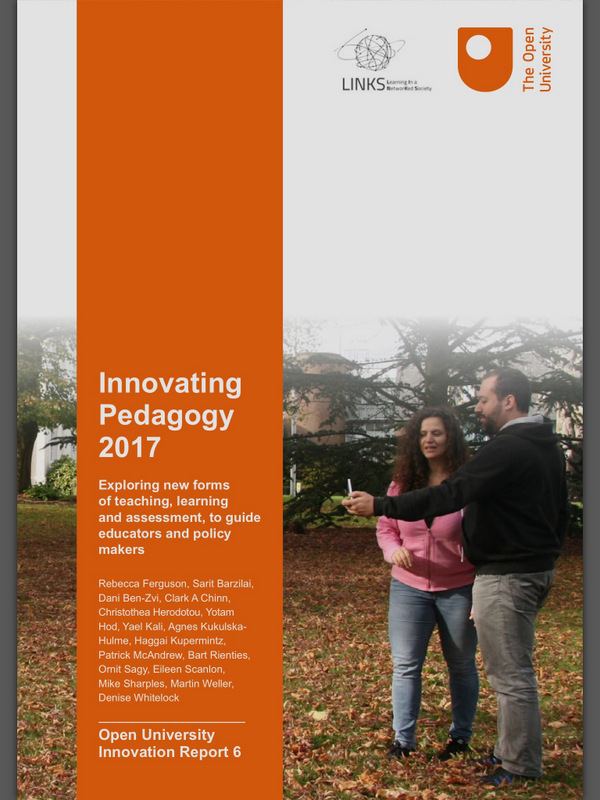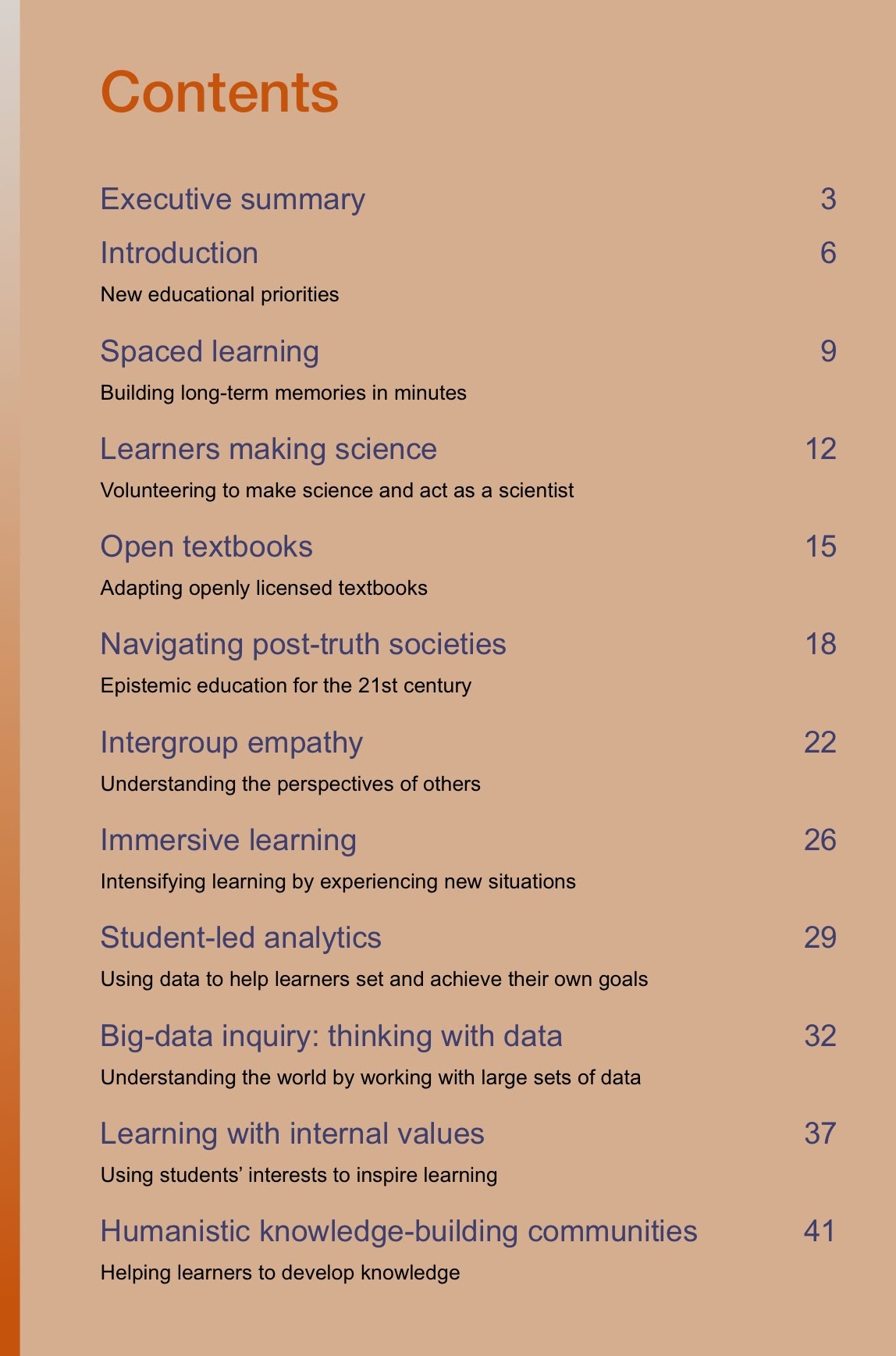
Innovating Pedagogy 2017 is a free download. Each piece is written in the form of an extended summary making each easy to read with ample references for those who wish to take it further.
My interest lies with 'Spaced Learning', 'Immersive learning', 'Student-led analytics' and 'Learning with internal values' - actually each piece is a fascinating and insightful read.
'Spaced Learning' for me (see this blog for much more' and 'SpacedEd' which developed into a commercial Pharma Sales Learning tool 'QStream' was a Harvard Medical School e-learning platform developed by Dr Price Kerfoot in 2010. Having taken the unusual step for a medical student to study for an MEd he then applied lessons on forgetting, Ebinghaus, to a simple platform that distributed learning parrot style over days and weeks. Like everything out of America it has to be monetized.
The Institute of Education has applied such thinking andthe latest neuroscience to apply this thinking to a single lesson broken into sessions 20 mins study with 10 mins physical exercise, then 20 mins recalling what was learent in the first 20 mins and so on. This isn't 'spaced learning' as in defeating the Ebinghaus 'Forgetting Curve' so much as making information stick by having to lay down a memory, or construct a memory either through intermittent testing or through project work to construct something from the initial knowledge intake.
Here are the contents:
